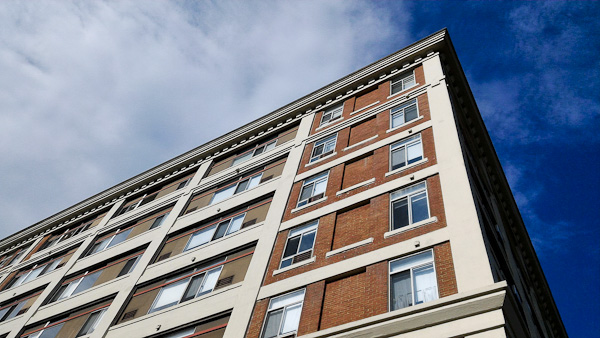Protect subsidized housing and save money for the Commonwealth

We wrote to the Chairs of the Joint Committee on Housing—Kevin G. Honan, House Chair, and Linda Dorcena Forry, Senate Chair—to support legislation that would enable local governments to keep subsidized housing from becoming market rate housing, leading to the displacement of thousands of tenants. A hearing was held on March 8 and expressions of support can still go to the Joint Committee or to your elected representatives. By preserving such housing for subsidized use, the Commonwealth can avoid the significant social and financial costs of having to rehouse thousands of persons.
Letter submitted in support of S690
S690, An Act authorizing municipalities to protect low and moderate income tenants and units of governmentally involved housing
We write on behalf of the Stop Bullying Coalition in support of S690. This bill would help preserve existing subsidized housing stock, and the homes of thousands of elderly or disabled persons and families, including people living in many communities across the Commonwealth as listed by CEDAC. It would enable the municipality where the housing is located to require the housing provider to extend the subsidized character of the property, either through obtaining funding from HUD or other agencies, or through a sale to a nonprofit housing provider.
Thousands of the elderly, families, or disabled persons who are eligible for subsidized housing face the risk of losing their homes when their buildings can be converted from subsidy to market rate. The need for subsidized housing is already great, and is only going to incease. The recent economic climate, including the long recession, has wiped out the retirement security and the homes of many families. Demographic growth of the elderly population is rapidly enlarging the pool of senior citizens who are eligible for subsidized housing. Persons living with disability are significantly disadvantaged by the lack of housing they can afford. And the homeless population, including many young children, cries out for relief.
Those lucky enough to have subsidized housing have no alternatives if their situation becomes untenable, for example, due to bullying and harassment in their residential facility. They may be told, "You don't belong here," or, a manager may proclaim, "If you don't like it here, move someplace else." Disabled persons may be harassed by other residents who proclaim, "They don't belong here." No matter that bullying is forbidden under "quite enjoyment" and even under the Fair Housing Act, there is often no recourse for victims. However, due to the severe lack of subsidized housing, waiting lists are very long, so moving is not even an option.
Many costly new initiatives and programs are surely needed to cope with these trends and situations, because safe, secure, and affordable housing would seem to be a fundamental human right and the Commonwealth must seek solutions. Preserving the availability of all affordable and subsidized housing stock can be at least a stopgap, with no costs for the municipality or Commonwealth, and most importantly, it can be critical for the wellbeing and even survival of those tenants living in "expiring use" housing.
We urge your support of this important legislation.
Sincerely,
Jerry Halberstadt, Coordinator, Peabody; Jonathan Gale, Associate Coordinator, Canton; Publia, Research Associate, Somerville
References
S690, An Act authorizing municipalities to protect low and moderate income tenants and units of governmentally involved housing https://malegislature.gov/Document/Bill/189/Senate/S690.pdf
For a listing of at-risk housing: http://cedac.org/housing/preservation.html
Database of Expiring Use Properties in Massachusetts 2016 (PDF file) Jan 2016
- Log in to post comments
